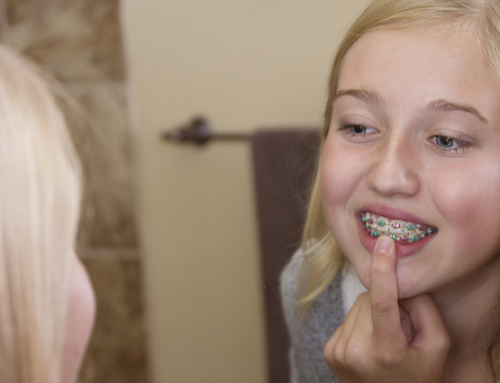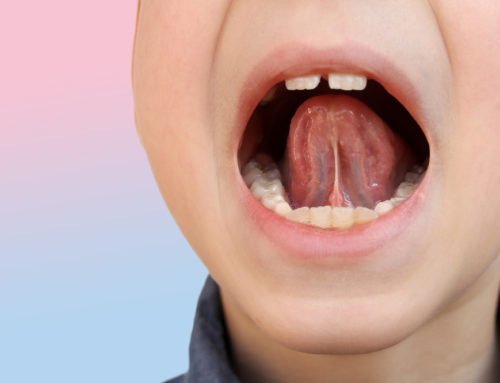Thumb sucking is a regular habit for many infants and toddlers, but if it is a trait that continues into childhood it can cause dental complications. As a parent, you may be wondering what is the ideal age for your child to stop thumb sucking, and how pro-longed thumb sucking can lead to dental issues down the road. The dentists at Snodgrass-King Dental in Middle Tennessee are here to provide those details and insights so you feel empowered to set your child up for fewer dental problems and a brighter smile in the years to come.
Let’s take a closer look at thumb sucking, ways to help your child quit thumb sucking, and the ideal age to break this habit!
Why Does a Child Suck on Their Thumbs?
To start, we need to understand why a child may suck on their thumb. As most parents know, this is a common habit children can pick up as early as infancy and as late as 4 months. The reason why children suck on their thumbs is mainly due to either their natural insisct or as a way of comfort and self-soothing. Babies have a natural sucking relfex, which thumbs can be easy to suck. Thumb sucking can also quickly become a habit in children, and is entirely normal to see as early as 2 hours after birth!
What is a Good Age to Break Thumb Sucking?
If your child has picked up the habit of thumb sucking, there will be an age at which it is ideal for your child to break thumb sucking—which is age 3 to 4 years old. Beyond these ages, espically age 4, thumb sucking can create pressure on both teeth and jaw, resulting in an overbite or protruding of front teeth.
Why is Age for The Right Age to Break Thumb Sucking?
Many dentists suggest age four as the ideal age for a child to break a thumb sucking habit because this before the time of permanant teeth coming in. Breaking this habit before the development of permanent teeth can see children, and parents, the headache of their being dental complications with permanaent teeth from thumb sucking. Additionally, children can usually break habits around the age of 4, and develop better coping mechanisms for self-soothing, instead of thum sucking, such as deep breathing exercises, coloring, or stuffed animals.
Are Pacifiers Safe Alternatives to Thumb Sucking?
In some instances, pacifiecers can be a safe alternative to thumb sucking in young childrem. Pacifiers can be helpful as they are more controlled, meaning parents can remove a pacifier at any time. However, prolonged use of a pacifier can lead to similar dental issues that can arise from prolonged thumb sucking.
Can Thumb Sucking Cause Dental Problems?
The reality is, prolonged thumb sucking can create dental probelms in children. Here are some common issues dentists see in children who continue with the habit of thumb sucking:
- An open bite is a gap between the lower and upper teeth.
- Misalignment of teeth can result in either an overbite or an underbite.
- Impact the shape and growth of the palate, or the roof of the mouth, which can impact the jaw.
- Misaligned teeth or palate complications can cause speech issues.
Dental Problems in Adulthood from Thumb Sucking
If a child continues with thumb sucking beyond the age of 5, then it can create additional dental comploications into adulthood if not addresses. Here are some of the common dental complications dentists see in adult pateints as a result of pro-longed thumb sucking from a patient’s childhood:
- Breathing issues from a raised palate resulting from thumb sucking can narrow nasal passages, resulting in snoring or sleep apnea.
- Speech problems, such as lisps, can develop if teeth are still misaligned form pro-longed thumb sucking in childhood.
- Difficulties in chewing or swallowing food from a misaligned bite that was developed from thumb sucking.
Tips to Help a Child Quit Thumb Sucking
If your child is struggling to break the habit of thumb sucking, we have some tips to encourage your child to quit thumb sucking for the sake of dental health. Here are our top 4 tips to help your child quit thumb sucking:
- Know their Triggers: As mentioned earlier, it is common for children to beging thumb sucking as a way to comfort or self sooth. As a parent, be aware if you notice your child reaching for their thumb as a source of comfort if they appear anxious, tired, or bored. If you find their reason for thumb sucking as a way to self sooth, consider supporting your child through alternatives such as a comfort object, healthy distractions, or helpful reassurance if it is an anxiety trigger.
- Positive Praise: Consider sharing with your child the reason why it is important to break the habit of thumb sucking. From there, you and your child can create a game or challenge to not thumb suck for a set amount of time. If your child meets this challenge, you can reward them with verbal praise or a small reward. This can help to break the habit, while also keeping your child reminded of how prolonged thumb sucking can create more dental issues, and dental visits, down the road!
- Go Gentle: If you have had the conversation with your child as to why it is not the best idea to suck their thumbs into childhood, but they still pick up this habit – go easy with them! Be gentle, kind, and understanding with your child. Focus on seeking understandment when you notice they are thumb sucking again, and try not to critizie them, instead help them become aware of this habit. Keep in mind, they are learning as they go and grow!
- Connect with a Professional: For a child who is still thumb sucking as a reuslt of anxiety, consider connecting with a child psychologist to get to the root of your child’s anxiety. A counselor may be able to help your child develop better coping mechanisms for anxiety. Additionally, if your child is struggling to break the hait of thumb sucking beyond the age of 4, reach out to a pediatric dentist. A dentist can chat with a child about the importance of breaking a thumb sucking habit, and a child may take it more seriously when coming form a dentist! In some cases, but not as common, a dentist can provide your child with dental applicants to prevent thumb sucking, known as a “palate bar”.
Connect With Snodgrass-King Dental for Thumb Sucking Help
At Snodgrass-King Dental, in Middle Tennessee, we offer support for children who are dealing with pro-longed thumb sucking. If you believe your child is developing dental complications from pro-longed thumb sucking, schedule an appointment today for one of our providers to connect with you! With offer a variety of ways to treat and assess dental complications from thumb sucking, in children and adults, such as:
- Bite examination
- Imaging
- Cleanings
- Braces
- Invisalign
With locations in Franklin, Spring Hill, Murfreesboro, and Mt. Juliet, you and your family will surely find the ideal location for all your dental needs.
Schedule your appointment with us today to answer any questions regarding thumb sucking, and to help your child break this habit. We look forward to hearing from you!







